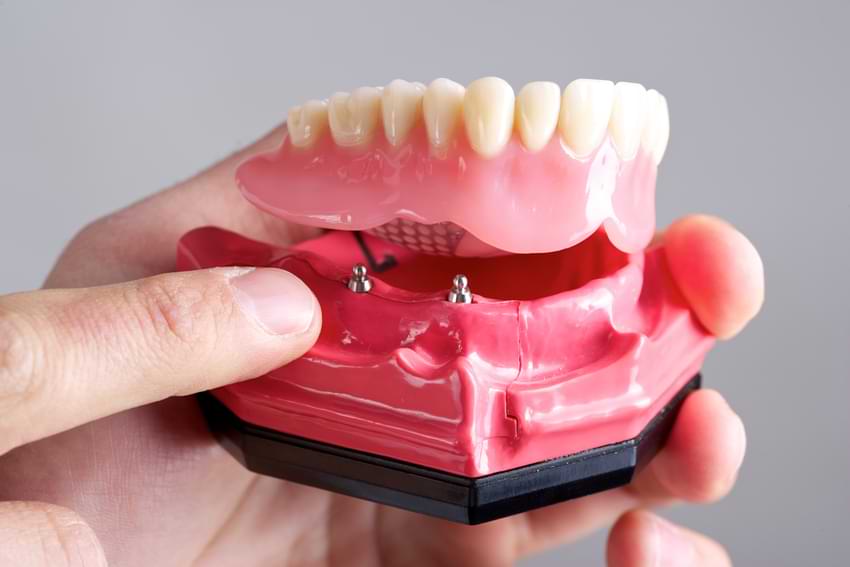
If you’re considering getting removable dentures, you’ve come to the right place. Direct Denture Care does all things dentures, from denture repairs to providing partial and full dentures in Perth. While removable dentures are a quality dental solution, they may not meet your specific needs and preferences. So, if you’ve got that nagging feeling, you can set your mind to rest. We’re about to shed light on the world’s most well-known dental appliance by addressing those common questions associated with dentures.
What Are the Specific Dental Needs That Removable Dentures Can Address Effectively?
1. Tooth Loss
Perhaps the most obvious dental need that removable dentures address is missing teeth. Whether you need full or partial dentures, this dental appliance will fill a gap-toothed grin or replenish a gummy smile with a whole new set of pearly whites — until you remove it from your mouth, of course.
2. Chewing & Speaking
Teeth assist with speech just as much as they do with chewing. So, if you’ve been struggling to chomp your food or speak with clarity, dentures may be just the restorative solution you need. Goodbye, liquid diet; hello, decipherable consonants!
3. Facial Structure
If you thought speech quality was the sole casualty of tooth loss, think again. Teeth are part of your skeleton, so it should serve as no surprise that losing part of your facial framework can compromise your facial structure. If you want to support those facial muscles, dentures may be a great way to define your profile and prevent sags.
How Can You Customise Removable Dentures To Match Your Individual Preferences & Aesthetic Requirements?
Customising removable dentures should be inherent to the process of getting them. Working with your dentist or denturist, you should specify the following to ensure you get a result tailored to your mouth:
1. Colour, Shape & Size
Work with your dentist or denturist to choose your desired tooth colour and shade. Consider factors such as the natural colour of your remaining teeth, your skin tone and personal preferences. When determining the shape and size of your denture teeth, you should consider factors such as your facial shape, gender and age. When you work in all of the above, the final product — your denture teeth — should blend into your smile and overall demeanour, making for a natural and harmonious appearance.
2. Dental Arrangement & Alignment
Determine the arrangement of the denture teeth. Your dentist or denturist will consider factors like the alignment of natural teeth, spacing and your bite pattern. They’ll also ensure that the front teeth align with your natural facial midline, unlocking a balanced and harmonious smile. Tailoring the dentures to your dental and facial features, your dentist is set to create a functional and aesthetically pleasing arrangement.
3. Gum Colour, Texture & Contour
Customise the colour and texture of the denture gums to mimic the natural appearance of oral tissues. This includes considering variations in gum colour, translucency and surface texture to ensure a lifelike result. You should also discuss the contour and shape of the gum line. The dentist or denturist will work to create a natural-looking transition between the denture base and your gums, paying attention to details such as the curvature of the gum tissue.
4. Photographic Documentation
Some dentists or denturists use photographic documentation during the customisation process. This helps capture details and nuances of your natural smile, aiding in the creation of dentures that closely resemble your original teeth.
Are There Limitations to What Removable Dentures Can Achieve in Terms of Meeting Specific Dental Needs and Preferences?
1. Stability & Chewing Efficiency
Removable dentures may not provide the same stability and chewing efficiency as natural teeth. While advancements in denture technology have improved their function, they may not match the biting force of natural dentition.
2. Bone Resorption
Over time, wearing removable dentures can contribute to bone resorption in the jaw. The pressure applied to the soft tissues during chewing is different from the natural stimulation provided by tooth roots. This can lead to gradual bone loss, affecting the fit of the dentures over time.
3. Speech Changes
Some individuals may experience changes in speech patterns when adapting to removable dentures. Because it can take time to adjust to the presence of the prosthesis, they may notice these speech issues at first — though they should ultimately resolve over time.
4. Aesthetics
While denturists can customise dentures to appear as realistic as possible, there may be limitations to achieving an entirely natural look. Denture aesthetics may not fully replicate the complexity and individuality of natural teeth.
How Do Removable Dentures Compare to Other Tooth Replacement Options, & Under What Circumstances Are They the Best Choice?
The major difference between removable dentures and other tooth replacement options is permanence. While most — if not all — other prosthetics either attach via implant or bonding, dentures are something you can remove at will. Let’s examine the other tooth replacement options and see how dentures compare.
1. Dental Crowns
Dental crowns are single artificial teeth, typically made from porcelain, though they can also be made from ceramic, metal or metal alloys, zirconia, composite resin, or a blend of these. Crowns can fill dental gaps, or they can fit over natural teeth — once your dentist has filed down the tooth in question to accommodate the crown. A common choice, crowns are the ideal aesthetic and functional solution for single missing teeth.
They’re typically bonded in place and irremovable, rendering them a more permanent solution. Think of them as stronger and permanent alternatives to partial dentures, which also have more biting power. Of course, if permanent teeth alterations make your teeth chatter, you may prefer to stick with dentures or implants.
2. Dental Implants
In their simplest form, dental implants are titanium screws that stand in for missing tooth roots. A dentist or dental surgeon will attach them to the jawbone while the patient is under anaesthetic. Though the most invasive tooth replacement, implants are by far the most secure. You can get either single implants — where you attach a crown to a single screw — or you can undergo All-on-4 treatment, which calls for four implants and an attaching full-arch prosthesis.
Obviously, the most striking difference between implants and dentures is that you can’t remove the former from your mouth. However high-quality your dentures may be, implants will also give greater biting power due to attaching to the jawbone and essentially stepping in for tooth roots.
3. Dental Bridges
Traditionally consisting of three crowns fused together, dental bridges are an aesthetic — as well as functional — dental solution. Rather than replacing a full arch, they isolate their focus to a specific cluster of teeth — so, in this regard, they’re like the permanent version of a partial denture. While bridges are built to fill a gaping gap with a crown, their namesake derives from the two crowns adjacent to the middle one. These two crowns attach to the two natural teeth that neighbour the dental gap — almost always after your dentist has filed them down to fit the crowns.
An obvious drawback of this tooth replacement is the fact that it calls for your dentist to irreversibly alter your teeth. It’s also more difficult to clean or maintain than dentures, especially considering there are natural teeth beneath the crowns. Of course, if you need a full-arch restoration, bridges do not even compare to dentures. They will have stronger biting power, though.
Overall, dentures are decent stand-ins for natural teeth that should provide adequate biting power and speech correction. They’re the least invasive option, they’re more cost-effective and they’re easier to clean. Other tooth replacements are typically more permanent and have greater biting power, though they can involve surgery and may be more difficult to maintain. The choice of which tooth replacement fits best in your mouth will be a subjective one.
Can You Adapt Removable Dentures to Changing Oral Health Conditions & Evolving Preferences Over Time?
Yes, you can adapt removable dentures to changing oral health conditions and evolving preferences over time. Here are ways in which you can adjust and customise your dentures:
1. Relining
Over time, changes in the shape of the jawbone or gum tissues can occur. Dentures may become loose or uncomfortable. Relining involves adding a new layer of material to the inner surface of the denture to improve the fit. This is a common procedure to address changes in the oral anatomy.
2. Rebasing
If the denture base remains in good condition but the teeth are worn or damaged, a dentist may recommend rebasing. This involves replacing the entire acrylic base while retaining the existing denture teeth. It helps maintain the fit and function of the denture.
3. Adjustments
Regular adjustments to the denture may be necessary to address issues such as sore spots, uneven bite or discomfort. Dentists can make small modifications to improve the fit and comfort of the dentures.
4. Tooth Replacement
If individual denture teeth become damaged or worn, you can replace them without altering the entire denture. This targeted approach allows for the replacement of specific teeth, maintaining the overall functionality of the denture.
5. Cosmetic Enhancements
You can accommodate changes in aesthetic preferences by making cosmetic enhancements to the denture. This may include adjustments to the shape, size or colour of the denture teeth to better align with your evolving preferences.
Direct Denture Care Can Take Care of All Your Denture-Related Needs
Now you know everything there is to know about dentures, it’s time to take action. Whether you require denture repairs or a new set of prosthetic teeth, we have the best partial and full dentures Perth has to offer. Call Direct Denture Care on (08) 9440 1540 or fill out the online enquiry form on our website. If it’s denture care or repair you need, we’re only a phone call — or click — away. Sink your teeth into your own set of removable dentures today!











